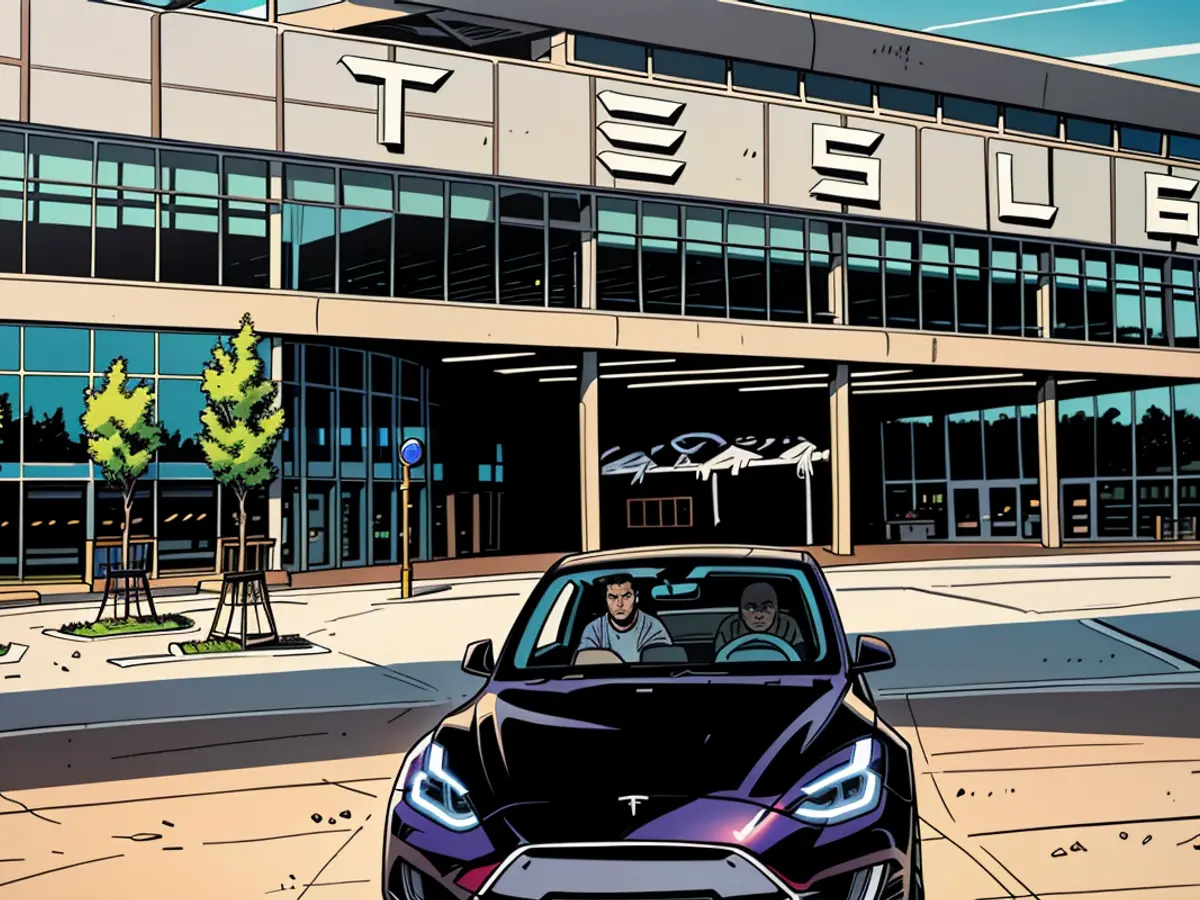- Tesla leaves open a schedule for expansion in Green Heights.
Protest, Production Halt, Market Issues: US Electric Car Maker Tesla Faces Growing Headwinds in Germany This Year. The company remains committed to expansion plans for its only European factory in Grunheide near Berlin, but the challenging market conditions have left the timeline uncertain. "We are confident that the market will pick up again. It's just a matter of how quickly and when," said plant manager André Thierig to the German Press Agency. However, he emphasized, "We won't invest several billion in expanding the factory without clear signals from the market that it's in demand."
Thierig, who has nearly 25 years of experience in the automotive industry, not only highlights the significant cost of building another factory but also sets a condition for it. "We can step on the gas if we see that we need to," he said. "We're still producing three shifts a day, five days a week, and could ramp up production at any time."
Fewer Electric Cars Registered
The electric car market is in a slump. In the first six months of this year, 184,125 electric vehicles were registered in Germany, including 21,249 Teslas, according to figures from the Federal Motor Transport Authority. In the same period last year, 220,244 electric vehicles were registered, including 36,384 Teslas.
Tesla, led by tech billionaire Elon Musk, has reported consecutive quarterly profit declines worldwide. The previously planned job cuts at Tesla also affected Grünheide: "Our initial planning at the beginning of the year predicted much stronger growth, which didn't materialize," said Thierig. "We quickly and quietly reduced 400 jobs with an attractive severance program."
Thierig points to production for the British Isles as a positive sign. "By serving the right-hand drive market in Britain and Ireland from Berlin, we now have a larger sales market to tap into directly."
Application for Approval in Stages
Tesla has been producing electric cars in Grünheide, Brandenburg, for more than two years, employing nearly 12,000 people. The company aims to increase production from a projected 250,000 vehicles per year to one million vehicles per year in the long term.
Tesla has submitted an application for environmental approval to the state of Brandenburg for expansion, but it has been delayed. The initial application is for modifications to existing buildings, for which the state environmental agency has issued a preliminary permit. "We expect the first partial permit in September or October," said Thierig. The state environmental agency has a similar timeline. Two more applications are planned, including one for a new factory.
The start of the year was rocky. Production was halted for about two weeks in January and February due to a shortage of parts caused by attacks by the Houthi militia in Yemen on ships in the Red Sea. Protests against the US company are growing. Environmental activists have been camping in the forest near the factory since February to protest against expansion plans involving deforestation and a new freight railway station, as well as water consumption. After a citizen survey in Grünheide that largely opposed expansion, less forest will be cleared.
Resistance Grows
In March, there was an attack on the power supply of Tesla near the factory, leading to a near-week-long halt in car production due to a power outage. In May, environmental activists attempted to storm the Tesla site during protest days. In June, production was halted again, allegedly due to internal optimizations. Tesla has introduced more automation; for instance, forklifts previously transported parts in the body shop, but now the process is fully automated.
Currently, planning is underway for a new freight railway station, which requires clearing land owned by the state. "We are in talks with the forestry department regarding the purchase," said Thierig. The Brandenburg state parliament's finance committee must give the green light, but it's uncertain if this will happen during this legislative period. "Then we would have a chance to potentially complete the purchase this year," he added.
Environmentalists have concerns - Tesla dismisses them
Since the construction of the plant, there have been significant concerns from environmentalists and residents, partly due to its location in a water protection area. Last year, water consumption was below 500,000 cubic meters, well below the agreed annual amount. Tesla uses 1.8 cubic meters of water per car, which it claims is significantly less than the industry average. BMW, for instance, used 1.78 cubic meters of drinking water per vehicle produced in 2023.
Tesla does not plan to consume more water than before for expansion. The agreed amount is sufficient for a million cars, as the company plans to recycle both process and sewage water in the future, according to Thierig. He views the protests critically: "We're building electric cars here, not an oil refinery or anything like that." However, the protest camp remains near the factory in the woods.
The electric car factory in Grünheide, where Tesla produces vehicles, employs nearly 12,000 people and is expected to increase production in the long term. Despite this, Andre Thierig, the plant manager, mentioned that they are not investing billions for expansion without seeing clear demands from the market.
Tesla's fortune in the German market has seen a slight decline, with fewer electric cars registered this year compared to last. In the first half of 2023, 184,125 electric vehicles were registered, a decrease from the 220,244 registered in the same period the previous year.








